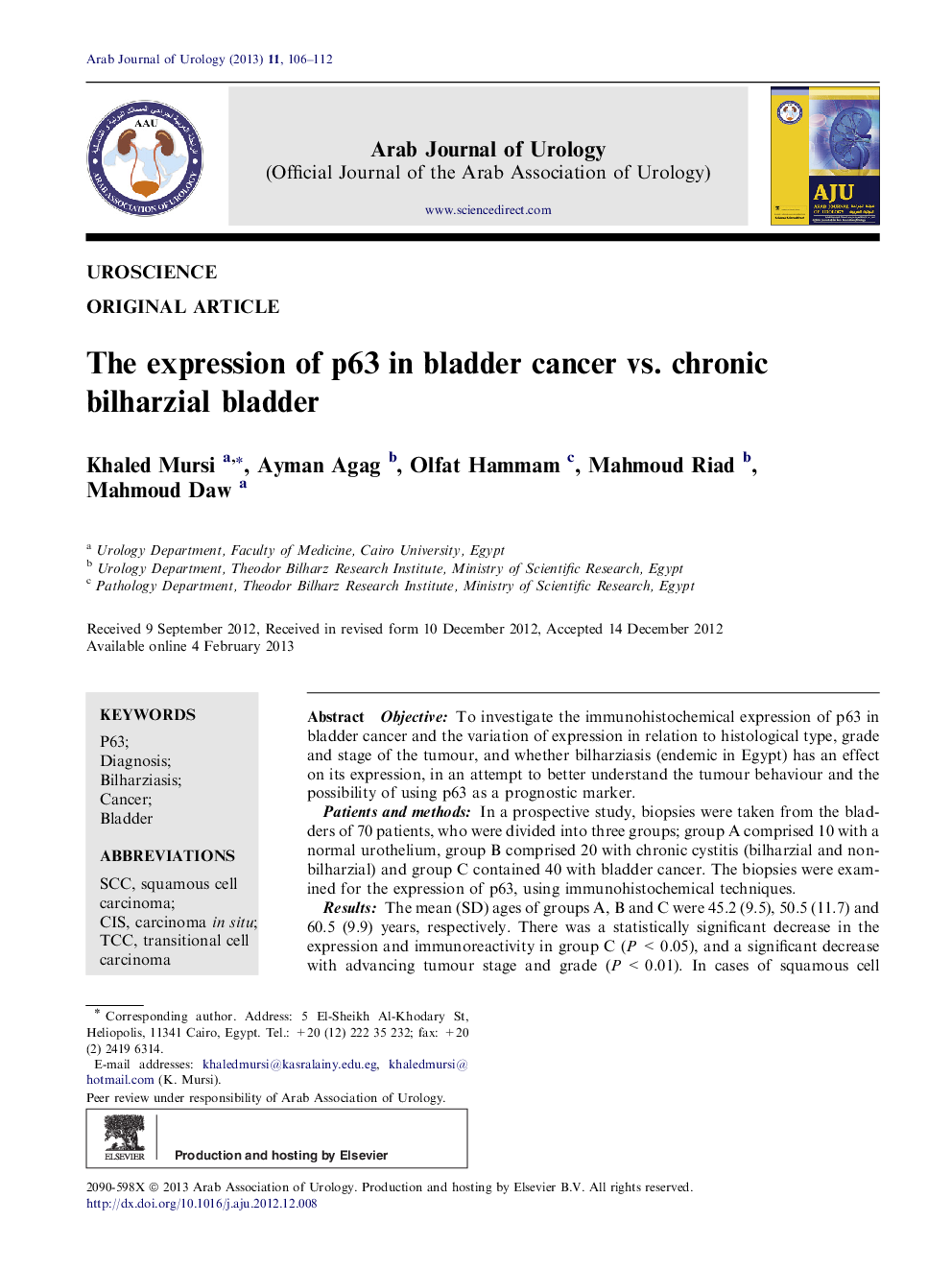| Article ID | Journal | Published Year | Pages | File Type |
|---|---|---|---|---|
| 4268131 | Arab Journal of Urology | 2013 | 7 Pages |
ObjectiveTo investigate the immunohistochemical expression of p63 in bladder cancer and the variation of expression in relation to histological type, grade and stage of the tumour, and whether bilharziasis (endemic in Egypt) has an effect on its expression, in an attempt to better understand the tumour behaviour and the possibility of using p63 as a prognostic marker.Patients and methodsIn a prospective study, biopsies were taken from the bladders of 70 patients, who were divided into three groups; group A comprised 10 with a normal urothelium, group B comprised 20 with chronic cystitis (bilharzial and non-bilharzial) and group C contained 40 with bladder cancer. The biopsies were examined for the expression of p63, using immunohistochemical techniques.ResultsThe mean (SD) ages of groups A, B and C were 45.2 (9.5), 50.5 (11.7) and 60.5 (9.9) years, respectively. There was a statistically significant decrease in the expression and immunoreactivity in group C (P < 0.05), and a significant decrease with advancing tumour stage and grade (P < 0.01). In cases of squamous cell carcinoma there was a statistically significant lower immunoreactivity than in transitional cell carcinoma (P < 0.05). There was a tendency for a statistically significant decrease in the immunoreactivity in bilharzial cystitis (P < 0.05), but in the malignant group, bilharziasis had no apparent effect on the pattern of expression.Conclusionp63 might be a helpful biomarker and adjunct in predicting the biological behaviour and progression of tumours. Further studies are recommended to elucidate more clearly its role as a prognostic indicator and its utility as a tumour marker.
